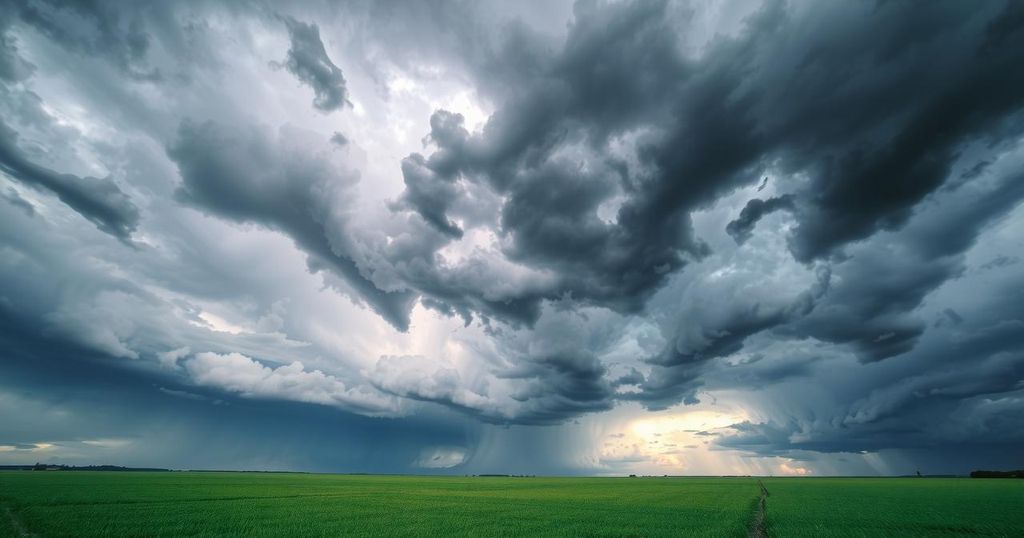Mozambique’s Response to Tropical Cyclone Jude: Challenges and Actions

Tropical Cyclone Jude made landfall in Mozambique on March 10, 2025, causing extensive damage and increased humanitarian needs. The CCCM response initiated efforts to support displaced populations, identify temporary accommodation facilities, and improve living conditions. Urgent collaboration is needed for effective humanitarian aid, especially regarding education recovery and essential services.
The Mozambican National Institute for Disaster and Risk Reduction Management reported that on March 6, 2025, a low-pressure system transformed into Tropical Cyclone Jude. By March 10, it made landfall in the Nampula province, bringing winds of up to 195 km/h and over 250 mm of rainfall in 24 hours. The cyclone significantly impacted Cabo Delgado and Zambézia provinces, leading to infrastructure damage, loss of life, injuries, and heightened humanitarian needs both locally and regionally.
Humanitarian response efforts in Mozambique’s northern regions are currently strained due to the effects of prior cyclones, Chido in December 2024 and Dikeledi in January 2025. In response, the Technical Council for Disaster Risk Reduction initiated anticipatory actions on March 8. The Camp Coordination and Camp Management (CCCM) response began on March 9, with activities including distributing cleaning tools and engaging communities in disaster risk management.
Local authorities have activated accommodation centers in Nampula and Zambézia for cyclone victims, supported by site management teams for assessments and coordination. CCCM and DTM teams identified 59 makeshift accommodation facilities in Nampula and one in Zambézia, although many have yet to be officially recognized. Collaboration is essential to accurately map and classify these sites for effective aid delivery.
Many families are forced to commute at night, seeking refuge in temporary shelters like schools, churches, and unfinished buildings while they attempt to rebuild their homes. Their urgent needs extend beyond basic necessities, emphasizing the need for improved living conditions and essential services within these facilities.
To enhance the living environment for displaced individuals, it is crucial to establish basic services such as handwashing stations and communal toilets. The cyclone has disrupted education, using schools as shelters and delaying students’ return. A coordinated response is needed to support the education sector and the families affected by the cyclone’s aftermath. Continuous updates and assessments of accommodation facilities will be necessary to account for families relocating to safer areas or abandoning temporary sites due to unsuitable conditions.
The situation following Tropical Cyclone Jude emphasizes the urgent need for coordinated humanitarian response efforts in Mozambique. Challenges include inadequate accommodation centers, strained resources from previous disasters, and significant disruption to education. Strengthening collaboration among local authorities, CCCM, and DTM teams is critical for effective resource allocation and long-term recovery initiatives.
Original Source: reliefweb.int







